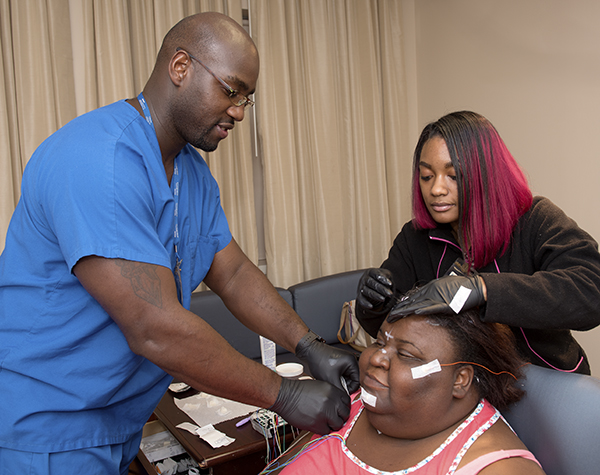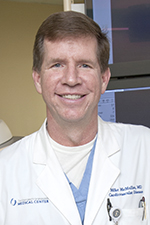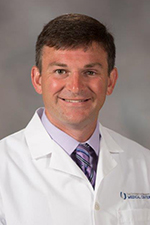Sleep

Published on June 27, 2017
Most people will agree: Getting too little sleep is bad for you.
But just how bad? Experts and researchers say it goes far beyond being groggy on the job or being too sleep-deprived to make good decisions.
Recent research shows that people who get less than six hours of sleep and who already have risk factors for heart disease, diabetes or stroke might be doubling their odds of dying from heart disease or stroke.
It's a sobering find in a state that has the country's highest death rate from cardiovascular disease and the fifth-highest from stroke.

McMullan
“People who aren't sleeping well think more about the effect on their overall well-being than the specific influence it can have on heart disease,” said Dr. Mike McMullan, a professor of medicine and director of the adult congenital heart program at the University of Mississippi Medical Center. “Sleep is important and it's something we don't look closely enough at in our patients.
“Multiple studies show we need to be aware of this and we need to address it. It can make a difference.”
Lack of sleep, be it caused by sleep apnea, a late-night lifestyle or any other reason, can affect the heart in multiple ways, McMullan said. That's true for anyone, regardless of age or other health habits.
“Physically, a lack of sleep can lead to higher blood pressure, becoming more insulin-resistant, more obese and more diabetic,” he said. “It places more stress on your body.”
It can also affect behavior.
“You can have cognitive difficulty, you are poorly motivated, tired all the time and not in a good mood,” McMullan said.
But McMullan said when people already have risk factors for heart disease and stroke, lack of sleep can lead to premature death. Those factors - known as metabolic syndrome - include high blood pressure, high levels of LDL (or “bad” cholesterol), high blood sugar, obesity, high levels of triglycerides and low levels of HDL (or “good” cholesterol).
Concerns about the health risks of too little sleep are shared by many health professionals.

Burgess
“It's amazing to me that of all the illnesses we have and diseases and symptoms, and what we die from, most of those things could be prevented, resolved, treated or managed by just our everyday basic behaviors: our sleep, our physical activities and what we put into our bodies,” Dr. Danny Burgess, UMMC associate professor of psychiatry, told a group of Medical Center employees at a recent campus wellness talk.
As part of evaluating their risks, people should consider how well they fall asleep, how well they stay asleep and how early they wake up, McMullan said.
“I can fall asleep with the best of them, but I can't always stay asleep,” he said.
McMullan said the care team at University Heart takes a number of steps to help patients whose difficulty sleeping puts their heart health in jeopardy.
“We do pay a lot of attention to sleep apnea, particularly in patients who are obese,” he said. “If they are snoring, we send them for a sleep study.”
He said tests record what happens to the body during sleep. While the patient is asleep, the causes of sleep problems can be explored through factors including brain activity, eye movement, oxygen and carbon dioxide blood levels, heart and breathing rate, and the flow of air through the mouth and nose.
UMMC physicians in cardiology, psychiatry and otolaryngology team up to find out the other reasons a patient stays awake - for example, being on their phones or watching television.
“Step one is to see if there's any reversible or treatable causes for the lack of sleep,” McMullan said.
“If you are on your laptop in bed, your brain is firing,” Burgess said. “You are associating that type of activity with a place that you sleep. Your brain thinks, 'This is where I do my Facebook.'”
Burgess uses a sleep hygiene index to help his patients understand why they're having trouble going to sleep and staying asleep. The index asks a person to answer “never,” “rarely,” “sometimes,” “frequently” or “always” to questions that include: “I go to bed at different times from day to day.” “I do something that may wake me up before bedtime.” “I think, plan or worry when I'm in bed.”
McMullan said even if someone with sleep problems doesn't have the metabolic syndrome risk factors that make them more prone to heart disease and stroke, consistent lack of sleep could cause them to develop risk factors.
“It's a much more widespread problem than we've been aware of, and one that we should take specific steps to address,” he said. “We need to make patients very aware that their chance of dying is twice as high if they don't do something about their sleep issues.”


